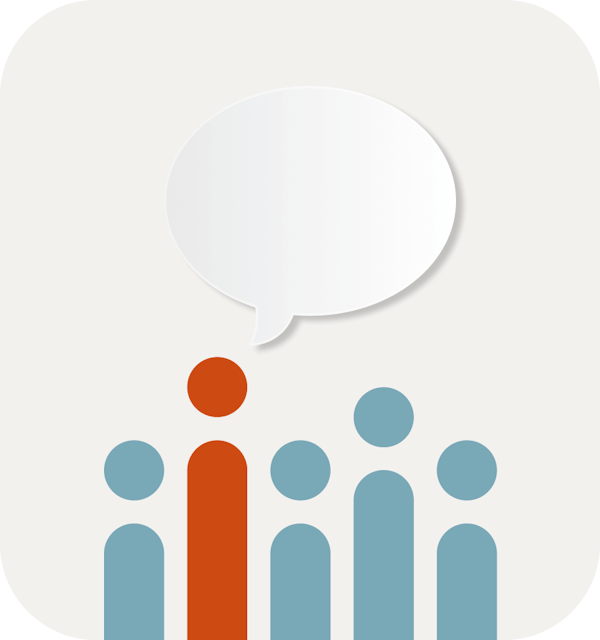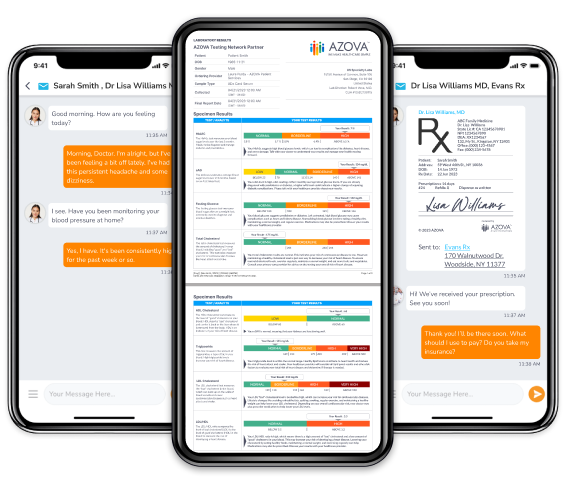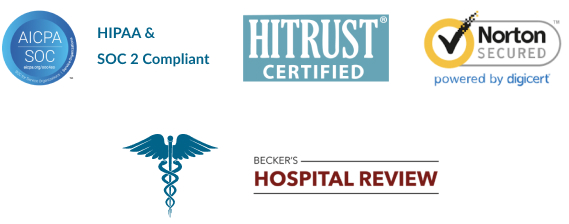Personalized depression treatment, just a click away.
Connect with an expert mental health professional through a secure, confidential video visit or messaging. Get a diagnosis and tailored treatment plan, all without leaving home.
Therapy services are available for adults and children of all ages in all 50 states. Psychiatry services are available for adults 18+ in all 50 states and for children 12+ in location where available.

Understanding depression1
Depressive disorder, or depression, is a widespread mental health condition characterized by prolonged depressed mood or loss of interest in activities. Unlike typical mood swings, depression impacts all areas of life, including relationships and work, and can stem from or cause further difficulties in these areas.
It affects about 3.8% of the global population, with a higher prevalence in women (5% women compared to 4% of men) and older adults (5.7%). Depression is notably common among pregnant and postpartum women.
Types of depression
- Major depressive disorder
- Persistent depressive disorder
- Postpartum depression
- Bipolar depression
- Seasonal affective disorder
- Psychotic depression
- Depression symptoms in adults
- Depression symptoms in children
- Depression causes in adults
- Depression causes in children
- Depression treatments for adults
- Depression treatments for children
Depression symptoms in adults²
Depression symptoms vary widely but generally include a prolonged low mood, feelings of hopelessness, and a loss of interest in previously enjoyed activities. These symptoms can interfere with work, social life, and family life.
- Psychological symptoms: Depression often shows as persistent sadness, hopelessness, and low self-esteem. You might feel tearful, guilty, and irritable, struggle with motivation and decision-making, and find no joy in life. Anxiety and suicidal thoughts can also occur.
- Physical symptoms: Depression can slow your movement and speech, alter appetite or weight, and cause issues like constipation. You might also experience unexplained aches, low energy, reduced libido, and sleep disturbances, such as trouble falling asleep or waking up too early.
- Social symptoms: Depression can cause you to avoid friends and decrease social activities. You might neglect hobbies and struggle in home, work, or family life, impacting your social interactions and quality of life.
Depression symptoms in children3
It’s important to recognize that children can experience depression just like adults. While it’s normal for kids to have ups and downs, when these feelings persist and are accompanied by other changes in behavior, it might be a sign of depression. Here are some common signs of childhood depression:
- Persistent sadness or bad mood: A child may seem unhappy, lonely, or grouchy for extended periods.
- Self-criticism: They may express negative thoughts about themselves and their abilities.
- Lack of energy and effort: Depression can lead to a decreased interest in activities and a feeling of fatigue.
- Loss of interest: Children may no longer enjoy things they used to find fun.
- Changes in sleep and eating patterns: Sleep disturbances and changes in appetite are common symptoms.
- Physical complaints: Aches and pains can sometimes be associated with depression.
Depression causes in adults4
Depression is a complex condition with multiple potential causes. It’s often a combination of various factors, ranging from biological to environmental. Here are some common causes of depression:
- Brain chemistry: An imbalance in the brain’s chemical messengers, which regulate mood, thoughts, sleep, appetite, and behavior, can contribute to depression.
- Hormone levels: Fluctuations in hormones, particularly estrogen and progesterone, during periods such as the menstrual cycle, postpartum period, perimenopause, or menopause, can increase the risk of depression.
- Family history: Having a family history of depression or other mood disorders can elevate your risk of developing depression.
- Early childhood trauma: Experiences of trauma or stress during childhood can affect how your body responds to fear and stress, increasing susceptibility to depression.
- Brain structure: Reduced activity in the frontal lobe of the brain has been linked to a higher risk of depression. It’s unclear whether this reduced activity occurs before or after the onset of depressive symptoms.
- Medical conditions: Certain chronic illnesses, including insomnia, chronic pain, Parkinson’s disease, stroke, heart attack, and cancer, can increase the likelihood of developing depression.
- Substance use: A history of substance or alcohol misuse can have a significant impact on your risk for depression.
- Pain: Persistent emotional or chronic physical pain is associated with a greater risk of developing depression.
Depression causes in children5
Childhood depression is a serious mental health condition that can have a significant impact on a child’s development, relationships, and overall well-being. While the exact causes are complex and often multifaceted, several factors can increase a child’s risk of developing this mood disorder.
- Physical health: Children with chronic or severe medical conditions, such as obesity, are more likely to experience depression. These conditions can lead to physical limitations, social isolation, and a sense of helplessness.
- Stressful events: Significant life changes, such as moving, divorce, or the loss of a loved one, can contribute to depression in children. These events can disrupt their sense of stability and security.
- Environment: A chaotic or stressful home environment, characterized by neglect, abuse, or parental conflict, can put children at a higher risk for depression. A lack of emotional support and a sense of safety can contribute to feelings of sadness and hopelessness.
- Family history: Children with family members who have experienced depression or other mood disorders are more likely to develop depression themselves. Genetic factors can play a role in increasing susceptibility to this condition.
- Biochemical imbalances: Uneven levels of certain hormones and chemicals in the brain can impact a child’s mood and emotional regulation. These imbalances can increase the risk of depression.
Depression treatments for adults
Depression in adults can be managed through various therapeutic approaches, each tailored to address different aspects of mental health. Here’s a brief overview of some common types of treatment4:
- Therapy can help you understand and address underlying issues. By exploring your thoughts, behaviors, and relationships, we can work together to develop healthier coping mechanisms and improve your overall well-being. There are various types of therapy to address different needs.
- Medications are used to treat depression, tailored to each individual’s needs to ensure effectiveness and minimize side effects.
- AZOVA’s Virtual Behavioral Health services offer convenient access to mental health professionals through secure video calls or messaging. This option can be a valuable resource for timely assistance and guidance.
Depression treatments for children5
When a child is diagnosed with depression, it’s important to seek professional help. The treatment plan for childhood depression often involves a combination of therapy and medication.
- Therapy serves as the initial approach to treatment. It aids children in understanding and managing their emotions while addressing the root causes of their depression.
Cognitive behavioral therapy (CBT) is a widely used method that helps children recognize and challenge negative thoughts and behaviors. For younger children, expressing their feelings through play therapy or art therapy can be particularly effective. - Medications, like antidepressants, can help stabilize mood and alleviate depression symptoms. However, these medications can have side effects, such as an increased risk of suicidal thoughts in some children. Close monitoring and consultation with your provider are essential if you observe any behavioral changes.
- AZOVA’s Behavioral Health services offer convenient access to mental health professionals through secure video calls or messaging. This option can be a valuable resource for timely assistance and guidance for your child.
Don’t suffer through depression. Get treatment today.
References
1World Health Organization. (2023, March 31). Depressive disorder (depression). https://www.who.int/news-room/fact-sheets/detail/depression
2NHS. (2023, July 5). Symptoms – Depression in adults. National Health Service. https://www.nhs.uk/mental-health/conditions/depression-in-adults/symptoms/
3Lyness, D. (2021, September). Childhood depression: What parents need to know. KidsHealth. https://kidshealth.org/en/parents/understanding-depression.html
4Higuera, V. (2023, October 27). Everything you need to know about depression (major depressive disorder). Healthline. https://www.healthline.com/health/depression
5Holland, K. (2019, February 21). Childhood depression: How to help your child. Healthline. https://www.healthline.com/health/mental-health/childhood-depression#causes
Need help or have questions?
Contact our AZOVA Customer Support team below
Live 24/7 chat
(quickest response)
You can chat with AZOVA’s Customer Support team for comprehensive support, including help with your account, testing, shipping, and results.
We typically respond within 5 minutes. Click the messaging icon on the lower right corner of the page to get started.



